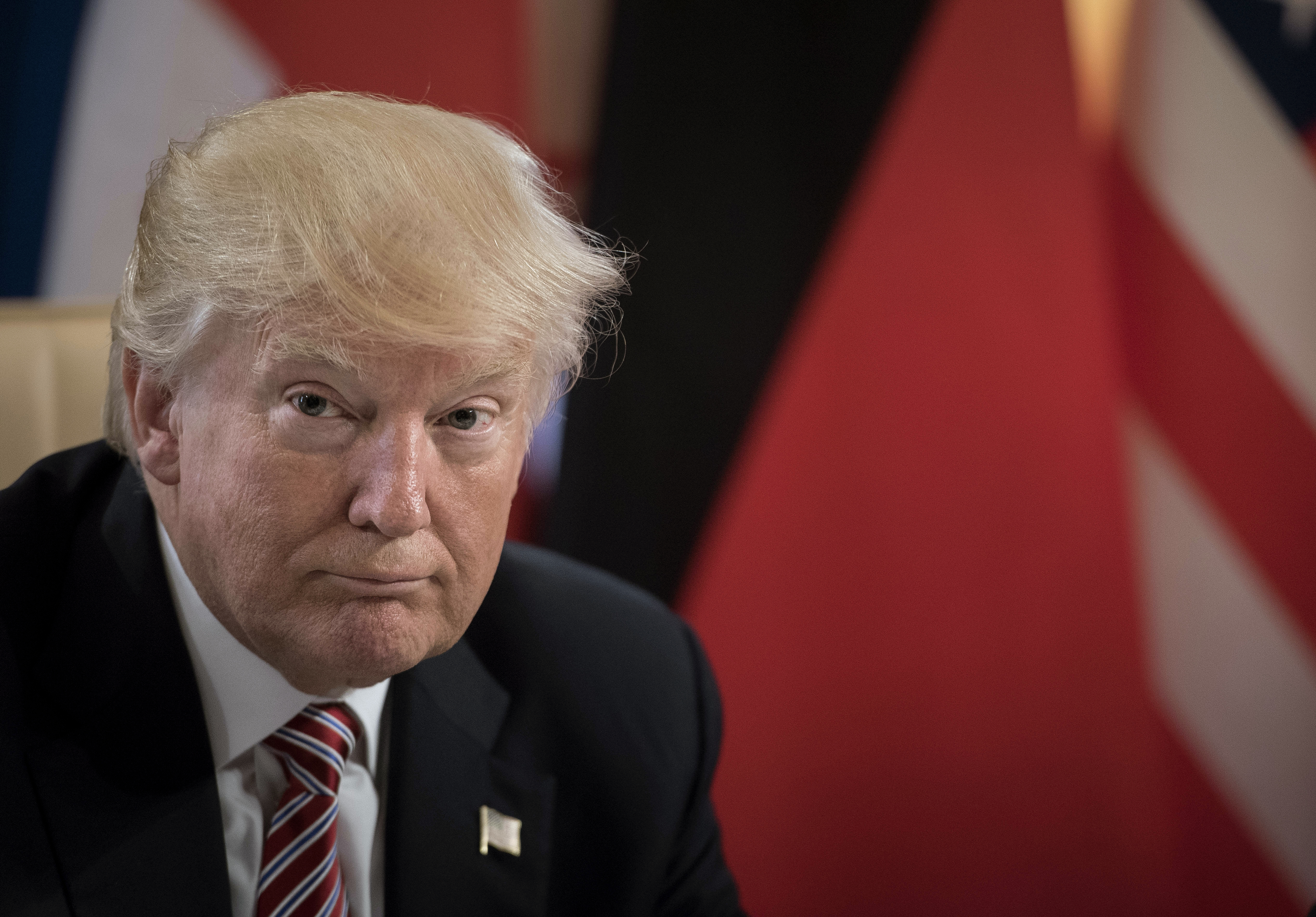After testy G7, how should Europe deal with Trump?
Photo: () | ©AFP
Paris (AFP) – The G7 summit at the weekend in Canada ended in acrimony when US President Donald Trump refused to sign a joint statement, leaving European leaders aghast at another diplomatic snub.
Since Trump’s election in November 2016, the EU has been scrambling for a strategy to deal with the unpredictable leader in the White House who has shattered old certainties about the transatlantic alliance.
What are Europe’s options?
– Charm him? –
No European leader has done more to worm their way into favour with Trump than French President Emmanuel Macron who flattered him as a guest of honour on the country’s national day last July.
During that trip and a reciprocal stay by Macron in Washington, there was endless back-slapping, as well as expressions of mutual admiration and a series of lengthy handshakes between the “friends” that have become famous.
But despite hard lobbying, the French leader failed to persuade Trump to stay in the 2015 Iran nuclear deal and scrap proposed tariffs on European steel and aluminium.
Macron has since faced criticism at home for getting too close to the ultra-nationalist American — and relations between them have publicly cooled in recent days.
“You can’t help but state that Macron has invested endlessly with Trump, but it doesn’t pay out,” French foreign affairs expert Dominique Moisi told Le Parisien newspaper.
– Confront him? –
The Europeans have been most vocal — and willing to risk a clash — on the issue of trade.
After Trump announced tariffs on European aluminium and steel last month, EU President Donald Tusk slammed the decision as “absurd” while France and Germany described it as “illegal”.
The European Union, which handles trade on behalf of its 28 member states, filed a complaint to the World Trade Organization (WTO) as a first step.
It is also finalising retaliatory duties against US products including steel products, bourbon whiskey, peanut butter, and jeans.
Trump has warned, however, that the US is ready for a trade war which experts predict would have dire economic effects on both sides of the Atlantic.
“They do so much more business with us than we do with them, that we can’t lose,” Trump said at the G7 summit. “We’ll win that war a thousand times out of a thousand.”
The path of confrontation would also require EU member states to remain united, rather than pursuing narrow national interests — as they have often done in the past when faced with a crisis.
“Europe United is the answer to America First,” German Foreign Minister Heiko Maas tweeted.
– Work around him? –
This has been the Europe’s approach on two multilateral deals, finalised under former US president Barack Obama, that Trump has disavowed.
The first was the 2015 Paris climate accord, which Trump abandoned last June, which the other roughly 190 signatories have vowed to uphold in the absence of Washington.
The EU has turned to China in particular, the world’s biggest emitter, as well as governors of US states and American businesses as it seeks to keep up momentum behind efforts to reduce greenhouse gas emissions globally.
After Trump walked out of the 2015 deal limiting Iran’s nuclear programme, European leaders also said they would try to uphold the deal by working with co-signatories Russia and China.
But while the fight against climate change can continue, many experts see the Iran nuclear accord as fatally undermined by the American withdrawal.
– Agree with him? –
On some issues, Europe has shown it is willing and ready to give the US president what he wants.
On defence, for example, Trump rails against the cost of keeping American forces in Europe to protect its NATO allies and has pointed the finger at Germany for under-funding its own military.
German recently announced it would lift its spending by 80 percent by 2024 and NATO said European members would raise their defence budgets by 3.82 percent this year — the fourth consecutive annual rise.
“It’s no longer the case that the United States will simply just protect us,” Merkel said in May.
– Muddle through until 2020? –
Faced with such hostility, there could be a temptation in Europe to simply muddle through and hope for the best at US presidential elections in 2020 when Trump will bid for re-election.
Analysts warn against wishful thinking.
“This is a very irresponsible approach,” Stefani Weiss, an expert at the Bertelsmann Institute in Berlin, told AFP. “You totally depend on others. It would be American voters who decide our fate.”
Pascale Joannin at the Robert Schuman Foundation, a think-tank, believes Europe’s future is at stake.
“We are at a crucial moment. At this time, we are still at the top table among the people who count. Will it still be the case in the future?” she asked.
Disclaimer: This story has not been edited by Siliconeer and is published from a syndicated feed. Siliconeer does not assume any liability for the above story. Validity of the above story is for 7 Days from original date of publishing. Content copyright AFP.


